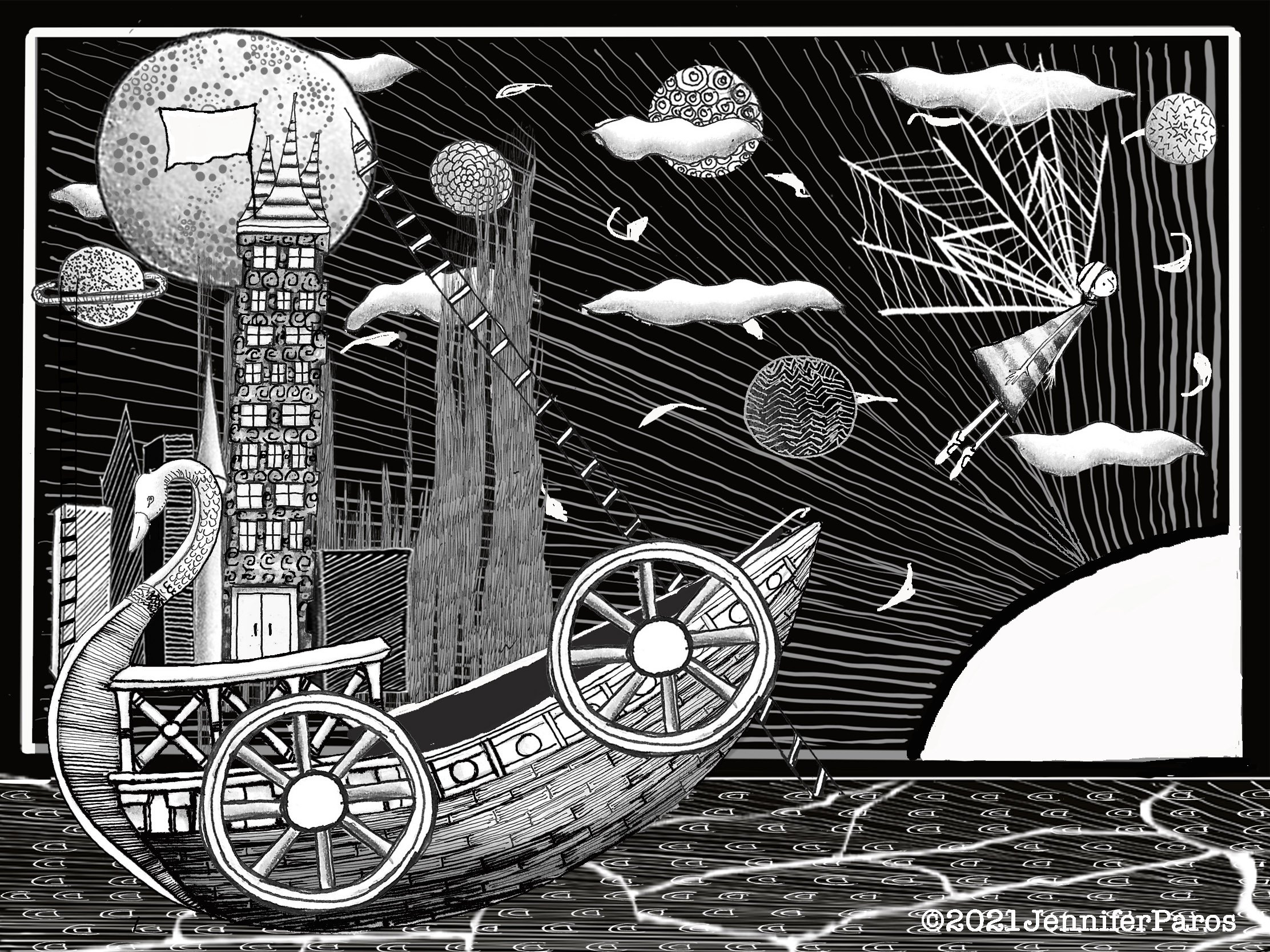Unbroken and Appropriate: Cultivating the Self-Compassion to Do Our Work
By Jennifer Paros
“I see only through myself. I hear only through the filter of my story.”
When my son was about two-and-a-half, I was sitting on the couch reading a Winnie the Pooh board book to him when he fell down on the floor and made a number of peculiar movements. I didn’t know what was happening. He was late to talking, so wasn’t able to communicate all that clearly yet. Within moments, I realized he was just acting out the story. But until I connected those dots, I couldn’t understand what was happening and his behavior seemed weird and worrisome. That behavior was completely appropriate, but I didn’t see it that way until I understood the premise from which he was acting.
Life coach and author Michael Neill once worked with a client with OCD who, every time she’d get on the bus to go to work, ended up returning home to make sure her apartment was locked and all the appliances were off. Her job was in jeopardy because of how late she’d arrive to work each day. He explained that there was nothing inappropriate or crazy about going back to lock a door that really seemed to have been left unlocked; not going back would be illogical. She was doing what was appropriate, based on the premise she believed to be true. Self-compassion and awareness of how thought determines what does and doesn’t seem like reality to us enabled her pattern of response to change.
Our minds are powerful in their ability to make what we’re thinking seem real. Most of us have had the experience of being so frightened in a dream we cry out and awaken ourselves. The mechanism that creates such a strong, authentic feeling experience in a dream creates powerfully convincing daily thoughts as well. We can race our own hearts, make ourselves break into a sweat, or even faint thinking of any number of projected calamities. That’s because our thoughts can seem so real.
Believing we’re crazy, inappropriate, or wrong doesn’t help. These judgments just form a lousy self-concept, which only serves to hamper us in creating something new. When we forgive, we let go of those concepts, all the misperceptions and misunderstandings (the false premises), and we become free again to go towards the story we actually want to see enacted in and through our lives.
“Nothing in life is to be feared, it is only to be understood. Now is the time to understand more, so we may fear less.”
In my early twenties I intended to go on for my master’s degree in fine arts. I wanted more training before applying, and so I decided to take classes at a local art school. Though I was quite anxious, I made myself go, and nervously arrived at the school a half hour before my first class. I went to a nearby park to pass the time. But the more I waited, the more my mind spun out; I was so jittery I could hardly hold myself still. In the acuteness of my mental distress, I opened the option of killing myself. I was pointing out the exit door – something I hoped might soothe me.
I needed to see I had a choice – one that would not lead to the continuance of me feeling so bad. I had such a strong desire to learn more and grow my work that I didn’t want to turn away from something I so wanted; I just didn’t want to feel terrified either. My problem wasn’t me, or the class; it was a self-concept that was inadequate to the business of going forward.
Our self-images must be able to handle the pursuit and creation of whatever we want. Otherwise, we’re screwed – we’ve got somewhere we want to go and only questionable means of getting there. It’s like wanting to go on a journey and getting in a boat we perceive as too small, broken, and unstable to make the trip. We still want to go, but as we set out we’re going to feel conflicted and anxious at best – petrified at worst.
That day I made the trip with a broken boat; I went to the class and was glad I did. But the false self-image doesn’t necessarily morph into something better when disproven by experience; it sticks around as long as we believe its story of us, making life much harder than it has to be.
Our underlying story always informs the way we feel and act. But we can become aware of that story, understand just how appropriate our feelings and actions have been, forgive, and act from the new premise of how truly whole and unbroken we are.
Jennifer Paros is a writer, illustrator, and author of Violet Bing and the Grand House (Viking, 2007). She lives in Seattle. Please visit her website.

